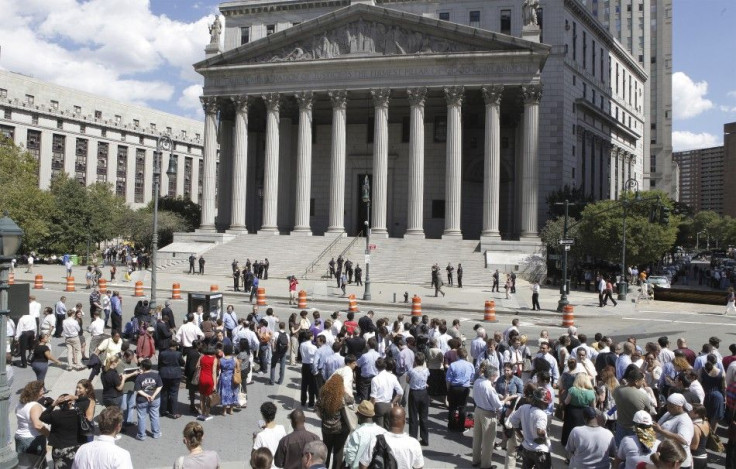Virginia Earthquake 2011: Damage Less than $100 Million

Despite the entire hullabaloo surrounding the historic East Coast earthquake, the 5.8 magnitude quake didn't create that much economic damage.
The earthquake that originated from Mineral, Va. shook Washington, D.C. and New York City, but caused less than $100 million in damages, according to catastrophe modeler EQECAT.
Considering all of the catastrophes over the past year, including tornadoes in the Midwest and the earthquakes in Japan, that number represents a stroke of good luck for insurance companies.
It's been a record year for catastrophe for early this year, Chris Hackett, the director for personal line policy for the Property Casualty Insurers Association of America, told the IBTimes. In comparison to what we saw with tornadoes in Alabama, (the earthquake) is a lot less of a financial type result.
Most attention has been turned to the damage of two D.C. landmarks -- the Washington Monument and National Cathedral. Initial reports stated the Washington Monument might be tilting, but a closer inspection actually showed it suffered cracks at the top of its peak, forcing the National Park Service to shut down the monument indefinitely.
The National Cathedral suffered damage to its central tower, enduring significant damage, according to reports.
But all of that damage could have been significantly worse if the earthquake's magnitude was a bit stronger, according to EQECAT projections.
If the Virginia earthquake was closer to a 7.0 than a 6.0, the damage could have been closer to $2 billion -- more than 20 times more than the less than $100 million estimate.
This year has been particularly bad for catastrophes as the United States was hit by bad winter blizzard, a string of tornadoes, and this most recent earthquake. Insurers can't expect a break anytime soon either, as Hurricane Irene continues its path to destruction on U.S. soil.
Currently the storm is expected to hit the Carolinas on Saturday with winds upward of 135 mph, before continuing on to hit the New York and New England areas.
The high amount of catastrophes doesn't guarantee that insurance premiums will go up, but insurance companies will likely re-evaluate coverage plans.
Insurers will typically look at their own loss history and models, number of policies that they had, Hackett said. They have to make a professional judgment based on pricing unit to weigh all facts and data for a reasonable and fair rate to offer, as well as insure a reasonable profit.
© Copyright IBTimes 2025. All rights reserved.





















